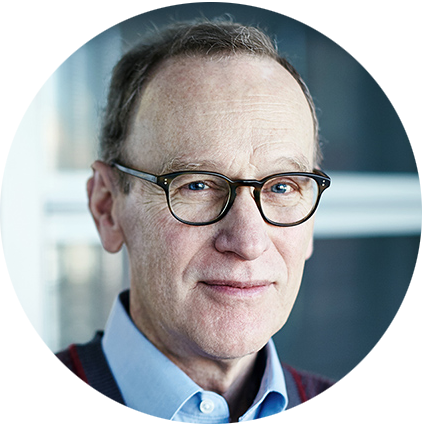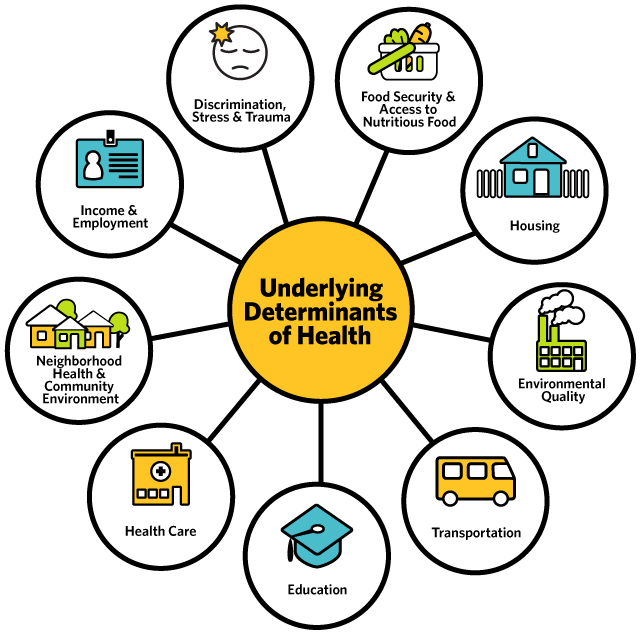 Yesterday I attended an all-day fair housing conference at UMSL, “Segregation in St. Louis: Dismantling the Divide,” organized by the Metropolitan St. Louis Equal Housing and Opportunity Council. The “divide” in the title alludes to the Delmar Divide, a real and symbolic gulf between white and black St. Louisans. The conference’s keynote speaker, Richard Rothstein, highlighted the central role of government in segregating America. Other conference sessions discussed practical steps we can take to dismantle the divide and move toward a more equitable region. Along with the event came the release of a report of the same name, now available on the For the Sake of All website. In careful and compelling detail, the report documents the historic and systemic proliferation of laws, policies, and practices that created, perpetuated, and continues to sustain racial divisions in St. Louis housing and geography.
Yesterday I attended an all-day fair housing conference at UMSL, “Segregation in St. Louis: Dismantling the Divide,” organized by the Metropolitan St. Louis Equal Housing and Opportunity Council. The “divide” in the title alludes to the Delmar Divide, a real and symbolic gulf between white and black St. Louisans. The conference’s keynote speaker, Richard Rothstein, highlighted the central role of government in segregating America. Other conference sessions discussed practical steps we can take to dismantle the divide and move toward a more equitable region. Along with the event came the release of a report of the same name, now available on the For the Sake of All website. In careful and compelling detail, the report documents the historic and systemic proliferation of laws, policies, and practices that created, perpetuated, and continues to sustain racial divisions in St. Louis housing and geography.
The “Segregation in St. Louis: Dismantling the Divide” report should be required reading for all St. Louisans interested in understanding how we got here as a community. The piece reinforces why this issue matters in the lives of our fellow citizens, and what we can do about it to fundamentally change the trajectory of our region for the betterment of everyone living here.
The way the report came together is a great example of stakeholders working together to improve our region. Similar to processes used to create both the “For the Sake of All” and “Forward Through Ferguson” reports, the Segregation report began with listening sessions that highlighted community voices via next-step meetings. Worthy of acknowledgement are the numerous groups – across various sectors – that came together to organize the right information to tell the region’s story in a compelling way, including nonprofit organizations, community groups, local universities, individual citizens, analysts, authors, advocacy groups, governmental agencies, legal clinics, and historians. The piece matches the Ferguson Commission report’s unflinching tone, offering a necessary perspective for learning our history so we can productively heal and move forward. As the publication notes, it is “ultimately about how hard it has been and how much better it can be. It is to everyone’s benefit for change to come, but we must face some hard truths before it does.” Needless to say, I’ve been thinking about that statement and how it connects to my own area of expertise – health.
As president of a health foundation, I was struck by the health themes woven throughout the report. The centrality of “housing first” is becoming recognized and acted upon, with some state Medicaid programs paying for supportive housing because it improves people’s health and saves money in the long run. The Segregation report adds an important community-level analog to the individual-oriented “housing first” efforts. It might be called “place first” or “neighborhood first” to underscore the crucial health influences of where people live their lives, raise their children, work, and play.
The report documents the dense intersection of place and housing, including transportation, jobs, education, food, health care, clean and safe environments, wealth, social networks, and evictions – all the practical components and challenges of everyday life often summarized as the social determinants of health. It’s an excellent exposition of how these underlying factors influence the health of individuals and communities. Perhaps most importantly, the report documents how these factors are crucial for all of us, and how we are all involved in, and responsible for, the “geography of inequity.”
 The report’s final chapter looks forward to what the region can do. The recommendations are practical, long term, and, if enacted, will demonstrate the region’s resolve for a more equitable and prosperous future. This fundamental work must be accomplished in order for us to become a thriving, healthy place for all of us to live together. As the report notes:
The report’s final chapter looks forward to what the region can do. The recommendations are practical, long term, and, if enacted, will demonstrate the region’s resolve for a more equitable and prosperous future. This fundamental work must be accomplished in order for us to become a thriving, healthy place for all of us to live together. As the report notes:
“The problem of segregation can be solved. New policies, programs, and incentives, and better enforcement of current policies can reverse the effects of more than a century of damaging housing policy. We can reshape our communities to be more diverse, inclusive, and prosperous for everyone.” Segregation in St. Louis: Dismantling the Divide


